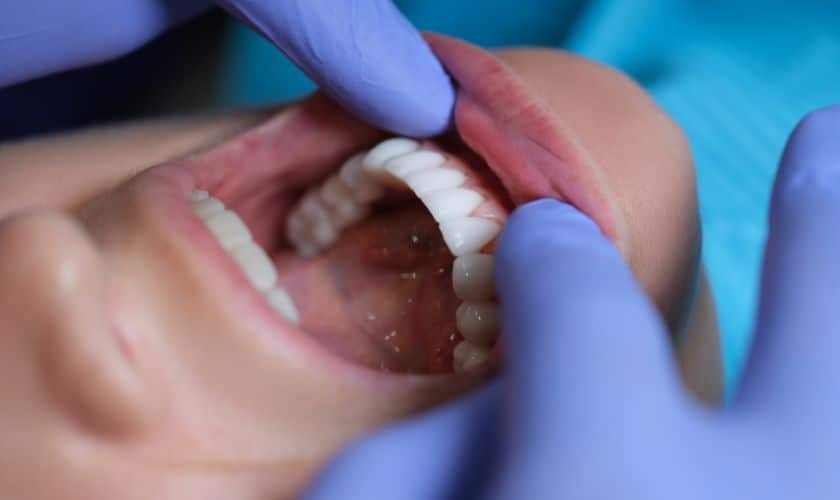The temporomandibular joint (TMJ) connects the jawbone to the skull and allows you to eat and speak. This joint is one of the hardest working joints in the body. A TMJ disorder is any problem that interferes with the proper function of your TMJs, causing pain that can radiate through your jaw to your head and neck, or a locked joint that prohibits you from fully opening or closing your mouth. Many patients do not know that their pain can be caused by a TMJ disorder, so it is important to discuss any discomfort, such as jaw pain or unexplained headaches, with your dentist at your regular dental checkup.
Causes and Symptoms of TMJ Disorders
There are a variety of possible causes for TMJ disorder, such as grinding your teeth, stress, arthritis, a hit to the jaw, or more. Sometimes, the cause remains unknown. There are also many different symptoms, including pain or tenderness in the joints and muscles, difficulty chewing, chronic headaches, ringing in the ears, and locked-jaw, to name just a few. If you experience any of these symptoms, but have not found an accurate diagnosis for your discomfort, than a TMJ disorder may be to blame, and appropriate dental treatment may be your only solution.
Diagnosis and Treatment
The first step to treating your TMJ disorder is to diagnose it with a thorough dental examination. Once diagnosed, TMJ disorders are corrected by addressing the underlying issues causing them. Treatment may be as simple as changing your diet to avoid sticky, chewy, or hard foods that can aggravate the symptoms, or doing exercises that strengthen your jaw muscles. If your teeth are crooked, then we may also recommend treatment to straighten them and restore your jaw’s balance. However, moderate to severe cases, such as those involving a congenitally malformed jawbone, may require oral surgery or other specialized treatment. Additional treatments may include pain relievers or muscle relaxants (to reduce pain and loosen tension in your jaw muscles), an oral splint, or physical therapy. Treatment is generally recommended based on the cause or severity of the TMJ disorder.
ABOUT YOUR SOUTHLAKE DENTISTS
As a native Texan, Gregory Wright, DDS, opened his private practice in Southlake, TX in 1992. He and Dr. Victoria Heron are happily accepting new patients from Southlake, Grapevine, Keller, Trophy Club, Colleyville, and all surrounding communities. To learn more, call our office today at (817) 481-7999.





